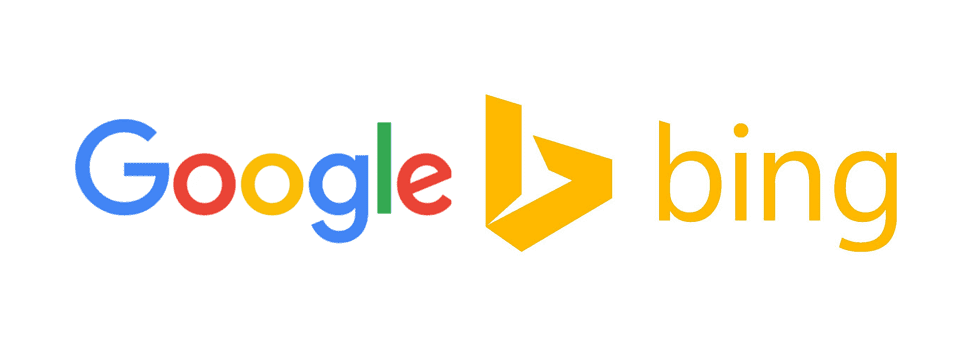With most digital marketers focused on Google for their SEO activities, it’s easy to forget that there are other search engines out there, including Bing.
In fact, Bing is used in one-in-five USA-based desktop searches, according to ComScore.
When combined with Yahoo, which Bing has powered since 2010, Bing serves up about 1/3 of search queries in the U.S.
If you are using Bing, are these numbers significant enough to convince you to stay with this search engine? Or do you ditch Bing altogether and use Google exclusively in your SEO strategy?
Listed below are some of the six major differences between Bing and Google.
1. Semantic Search On Fresh Content Is Google’s Endgame
Due largely to machine learning and RankBrain, Google can understand a page’s content without relying only on exact match keywords.
In contrast, Bing still advises webmasters to insert keywords into title tags, meta descriptions, and text components.
This can become an issue if your keywords have multiple meanings. Exact match keywords can also make the copy appear contrived and redundant when overused.
Google also prefers content that is up-to-date and fresh. Meanwhile, Bing considers older and reputable sites as more relevant.
2. Bing Still Relies On The Meta Keywords Tag
In 2009, Google announced that it would no longer be considering the keywords found in a site’s meta description or meta keyword tags to rank search results.
Conversely, if you continue plugging keywords into the meta description and meta keywords tags, you should help enhance your page ranking on Bing.
While inserting targeted keywords into the meta areas of pages may be tedious, it continues to be a necessity if you wish to maintain top ranking on Bing.
If your only goal is to outrank other pages on Google, though, you needn’t worry too much about your meta description and keyword tags.
3. Google Won’t Care (as much) About Your Exact Match Domain (EMD)
Remember when effective online marketing included creating an EMD?
There are several benefits to having an EMD, including appearing more authoritative and being easier to remember by customers.
However, at least one of those benefits–higher ranking on the exact match search engine results page (SERP)–is no longer likely to happen on Google.
In fact, according to Matt Cutts, having an EMD with low quality content could end up lowering your website rank on Google.
In contrast to Google, Bing may rank a website higher if it is an EMD. Unfortunately, many EMDs cost more money to purchase.
Unless you really need that EMD, you may be better off forgoing it in lieu of creating higher quality branded content.
4. Bing Rewards Visual Search Results
Bing is much better at featuring search results containing video, audio, images, and Flash-based multimedia.
Google, on the other hand, is more focused on text. Its spiders don’t even crawl Flash-based websites.
That’s not saying that videos and images aren’t a ranking factor for Google, but such assets are just not as key as they are for Bing.
So, if your website pages are text-heavy, you may prefer to focus on optimizing it for Google.
If your site is multimedia-rich (which is often the case with sites that house Amazon products), then Bing is your better bet.
5. Bing Favors Institutions; Google Prefers Authority
Google and Bing both assign value to a website by examining its backlinks.
However, the two search engines differ greatly on which backlinks are deemed more valuable than others.
If your website has backlinks from sites that carry high PageRank, then your website will be deemed of high quality in the eyes of Google.
With Bing, backlinks are weighted more heavily based on their age and specific TLD (top level domain) types.
In particular, Bing favors websites that end with .gov, .edu, and .org extensions. Bing also prefers a higher backlink number, while Google emphasizes link quality over quantity.
So, if you own a college or government website that contains backlinks from other educational or organizational websites, Bing would be the search engine to optimize for.
If your website is ecommerce-oriented, and you rely on the value of Amazon for your business, then Google is probably your better match.
6. Google Is Less Social Than Bing
Bing considers sites that are mentioned on social media platforms like Twitter or Facebook as more valuable and relevant for ranking on its SERP.
Conversely, Google doesn’t weigh social signals as heavily, and may even consider them as spam.
If you want your website to rank well on Google, you don’t have to stop interacting with social media. Just make sure that your content and posts are of the highest quality.
In this way, neither search engine will flag your site as being of low quality.
Conclusion
Should you focus on Bing or Google when optimizing your website for search? It depends.
You should factor in your goals, website history and identity, and mentions by other websites. One search engine may not necessarily be better than another.
However, it is safe to assume that both Bing and Google are focused on displaying content that offers value for its consumers, regardless of how they find your pages.
Lianna Arakelyan
Latest posts by Lianna Arakelyan (see all)
- Google Vs. Bing for SEO: Should You Target Both? - July 9, 2019





